Barred Midas…
- Thread starter biguebs
- Start date
The Wetspot Tropical may have them.Anyone know where I can find these right now? With COTA shut down I can’t seem to find any. Thanks all
No dice, my thought as well.The Wetspot Tropical may have them.
There are a number of species in the genus Amphilophus that can be lumped into the common name, Barred Midas
Amphilophus amarillo
A astorqii
A chanco
A citrinellis
A flaveolus
A globosus
A labiatus
A sagatae
A xiloensus
A zaliosus
All the above have barred morphs, and are nearly impossible to tell apart unless the lake of their ancestral origen is known.
Below is Amphol;ophus amarillo from lake Xiloa
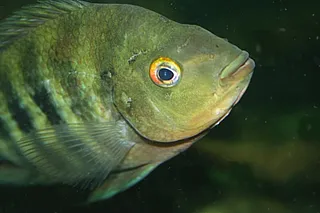
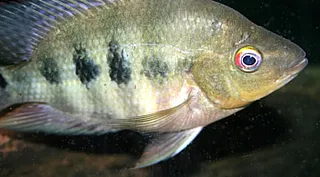
As juvies they all look alike, but knowing how they will turn out, as adults is anybodies guess
they could be barred, could be pink, could be piebald
the amarillo above, as juvies below
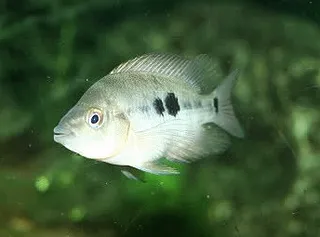
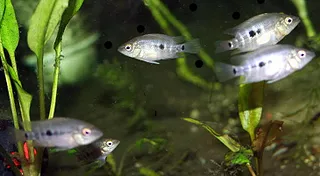
Amphilophus amarillo
A astorqii
A chanco
A citrinellis
A flaveolus
A globosus
A labiatus
A sagatae
A xiloensus
A zaliosus
All the above have barred morphs, and are nearly impossible to tell apart unless the lake of their ancestral origen is known.
Below is Amphol;ophus amarillo from lake Xiloa


As juvies they all look alike, but knowing how they will turn out, as adults is anybodies guess
they could be barred, could be pink, could be piebald
the amarillo above, as juvies below


As always this response from you goes above and beyond. In simplest terms, I’m looking for a small group of citrinellus to start out in a 220 and hopefully get a pair, but not a traditional orange / white. Even using a broad term like “barred” is not yielding results and I’m kicking myself a bit because COTA had what I’m now looking to obtain for years.There are a number of species in the genus Amphilophus that can be lumped into the common name, Barred Midas
Amphilophus amarillo
A astorqii
A chanco
A citrinellis
A flaveolus
A globosus
A labiatus
A sagatae
A xiloensus
A zaliosus
All the above have barred morphs, and are nearly impossible to tell apart unless the lake of their ancestral origen is known.
Below is Amphol;ophus amarillo from lake Xiloa
View attachment 1537777View attachment 1537776
As juvies they all look alike, but knowing how they will turn out, as adults is anybodies guess
they could be barred, could be pink, could be piebald
the amarillo above, as juvies below
View attachment 1537778View attachment 1537779
The thing about looking for A citronellas (barred Midas) that gets difficult, is that for many years, the "hobby, and ichthyologists perceived "all" the above species as citronellas or labiatus, as the only two species.
When the reality is, any of the 10 species I listed could be called citronellas.
What this ignorance led to, was random hybridization (of all the above), and why we ended up with midevils.
There's a similar problem with what is dubbed the Starry night cichlid.
At first all were thought to be either Paratilapia polleni, or P. bleekeri, but.,,,,,
As ichthyologists delved deeper they realized there are really at least a half dozen Paratilapia species.
To me it doesn't take a rocket scientist to realize the two "starry nights" below aren't the same, but people did.
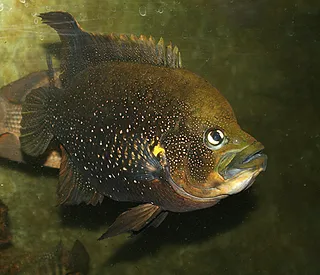
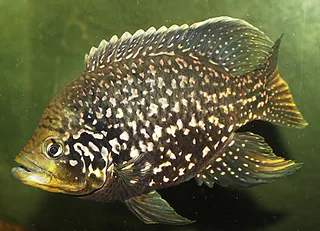
Left above is Paratilapia polleni small spot, right is Paratilapia andapa.
The end result being a mixed breed of generic, aquarium strain Paratilapia, called the starry night,
so if an aquarist asks for a species using a common name like Starry night, or Barred Midas this is often "what you get", and there is only a slight chance you will get what you are really asking for..
To many aquarists, this is just semantics, and could care less.
I get the impression from your response, it appears you'd like something more specific.
Same thing will happen if anyone walks into a LFS and asks for a Texas cichlid.
there are half dozen species of Herichthys sold as Texas cichlids, H. cyanoguttatus, H carpintus, H tamosopoensus, H. tepehua and more, a more cognizant LFS might post the term Green Texas, or Blue,, but even those terms are nebulous.
Hopefully if one asks for Herichthys carpintus you could get the one below left, or...if you ask for H. tamasopoensu the species below right.
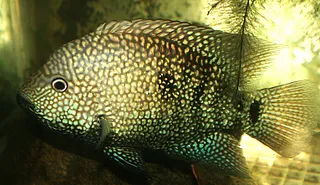 .
. 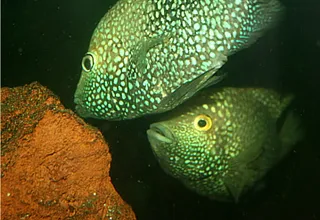
Many aquarists complain about the use of scientific names, I see their use as the only way to actually get what you want.
When the reality is, any of the 10 species I listed could be called citronellas.
What this ignorance led to, was random hybridization (of all the above), and why we ended up with midevils.
There's a similar problem with what is dubbed the Starry night cichlid.
At first all were thought to be either Paratilapia polleni, or P. bleekeri, but.,,,,,
As ichthyologists delved deeper they realized there are really at least a half dozen Paratilapia species.
To me it doesn't take a rocket scientist to realize the two "starry nights" below aren't the same, but people did.


Left above is Paratilapia polleni small spot, right is Paratilapia andapa.
The end result being a mixed breed of generic, aquarium strain Paratilapia, called the starry night,
so if an aquarist asks for a species using a common name like Starry night, or Barred Midas this is often "what you get", and there is only a slight chance you will get what you are really asking for..
To many aquarists, this is just semantics, and could care less.
I get the impression from your response, it appears you'd like something more specific.
Same thing will happen if anyone walks into a LFS and asks for a Texas cichlid.
there are half dozen species of Herichthys sold as Texas cichlids, H. cyanoguttatus, H carpintus, H tamosopoensus, H. tepehua and more, a more cognizant LFS might post the term Green Texas, or Blue,, but even those terms are nebulous.
Hopefully if one asks for Herichthys carpintus you could get the one below left, or...if you ask for H. tamasopoensu the species below right.
 .
. 
Many aquarists complain about the use of scientific names, I see their use as the only way to actually get what you want.
Ahh now I understand what you were saying. You’re certainly correct, there is a whole lot of what you’re describin. To build on that - now there is also the issue of whether or not online fish stores are legit at all, drop shipping, or flat out intentionally misrepresenting what they are selling. I wish I had an LFS local to me that I could utilize but all we have is Petsmart etc.The thing about looking for A citronellas (barred Midas) that gets difficult, is that for many years, the "hobby, and ichthyologists perceived "all" the above species as citronellas or labiatus, as the only two species.
When the reality is, any of the 10 species I listed could be called citronellas.
What this ignorance led to, was random hybridization (of all the above), and why we ended up with midevils.
There's a similar problem with what is dubbed the Starry night cichlid.
At first all were thought to be either Paratilapia polleni, or P. bleekeri, but.,,,,,
As ichthyologists delved deeper they realized there are really at least a half dozen Paratilapia species.
To me it doesn't take a rocket scientist to realize the two "starry nights" below aren't the same, but people did.
View attachment 1537784View attachment 1537785
Left above is Paratilapia polleni small spot, right is Paratilapia andapa.
The end result being a mixed breed of generic, aquarium strain Paratilapia, called the starry night,
so if an aquarist asks for a species using a common name like Starry night, or Barred Midas this is often "what you get", and there is only a slight chance you will get what you are really asking for..
To many aquarists, this is just semantics, and could care less.
I get the impression from your response, it appears you'd like something more specific.
Same thing will happen if anyone walks into a LFS and asks for a Texas cichlid.
there are half dozen species of Herichthys sold as Texas cichlids, H. cyanoguttatus, H carpintus, H tamosopoensus, H. tepehua and more, a more cognizant LFS might post the term Green Texas, or Blue,, but even those terms are nebulous.
Hopefully if one asks for Herichthys carpintus you could get the one below left, or...if you ask for H. tamasopoensu the species below right.
View attachment 1537786. View attachment 1537787
Many aquarists complain about the use of scientific names, I see their use as the only way to actually get what you want.
Thanks much for your detailed, and frankly quite educational, response. A true wealth of information
Perhaps the appropriate question here is “who knows where COTA’s barred Midas went or has offspring to sell me?”










